Journalism & Media
Beginner
Nothing Is True and Everything Is Possible: The Surreal Heart of the New Russia

This book explores modern Russia through the lens of media, propaganda, and political spectacle. Peter Pomerantsev is a British journalist who worked in Russian television. He describes a world where reality is shaped by the state-controlled media, creating an environment where truth is fluid, and power is based on illusion. The book follows eccentric oligarchs, political operatives, and everyday Russians navigating this new, unpredictable landscape.
The first time I read this book I had a hard time taking it in. Not because it's boring or overly technical, quite the opposite - a lot of the time it reads more like a novel. No, what was hard was the surreal surroundings the author described living through. Which is probably why I consider it a good (and oddly fascinating) introduction to live in modern Russia, showing how propaganda and media manipulation shape society.
The Red Web: The Struggle Between Russia’s Digital Dictators and the New Online Revolutionaries
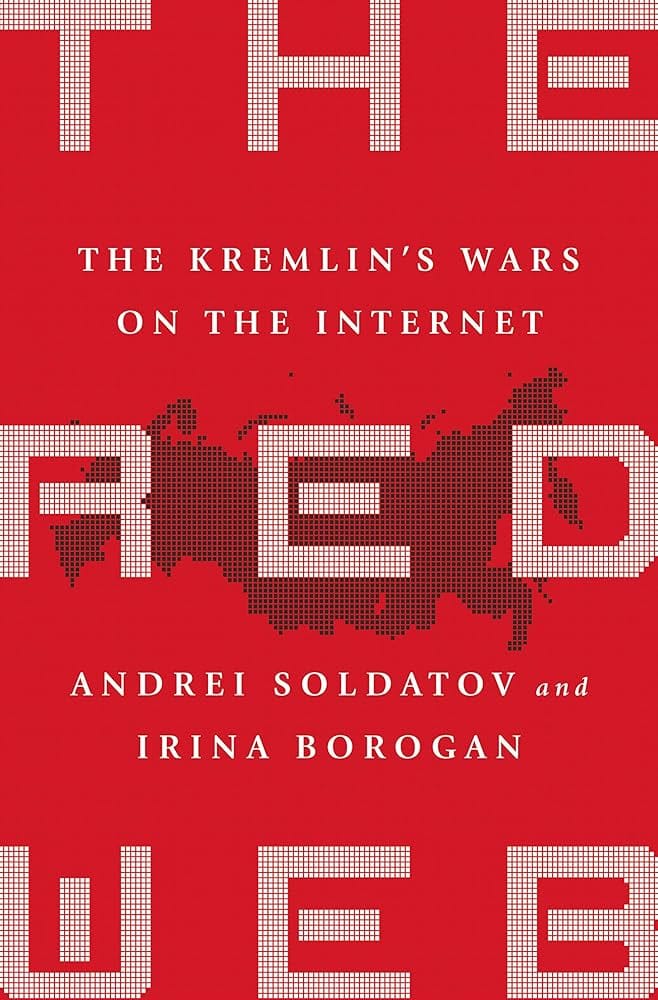
Soldatov and Borogan discuss the origins of Russia's digital authoritarianism, tracing its roots back to the Soviet era and the development of the country's cyber capabilities. They examine the role of key figures and organisations, suchas the the FSB, in shaping Russia's digital strategy, as well as the impact of these efforts on politics, democratic values, and human rights within Russia.
The book takes a look at the challenges faced by independent journalists, bloggers, and activists in Russia's increasingly repressive online environment, as well as the role of Western governments, tech companies, and NGOs in supporting or hindering these efforts. If you want to learn more about the Russian Internet than the fact that a thing like SORM exists, read this book.
Putin’s Propaganda Machine: Soft Power and Russian Foreign Policy
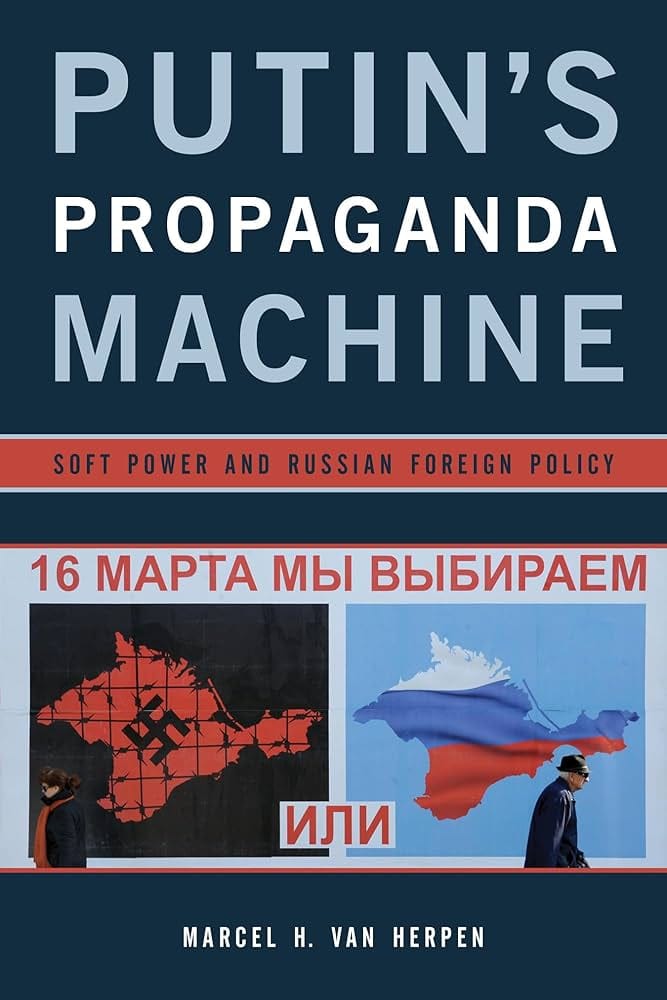
This book examines how the Kremlin uses propaganda, media manipulation, and soft power to influence both domestic and international audiences. It looks at the structure of Russia’s state-controlled media, its use of misinformation and disinformation, and how Putin’s government employs soft power tools such as cultural diplomacy, energy politics, and international broadcasting (e.g., RT and Sputnik). The book also discusses Russia’s influence operations in Europe and the United States, showing how propaganda is a key element of Russian foreign policy.
This Is Not Propaganda: Adventures in the War Against Reality
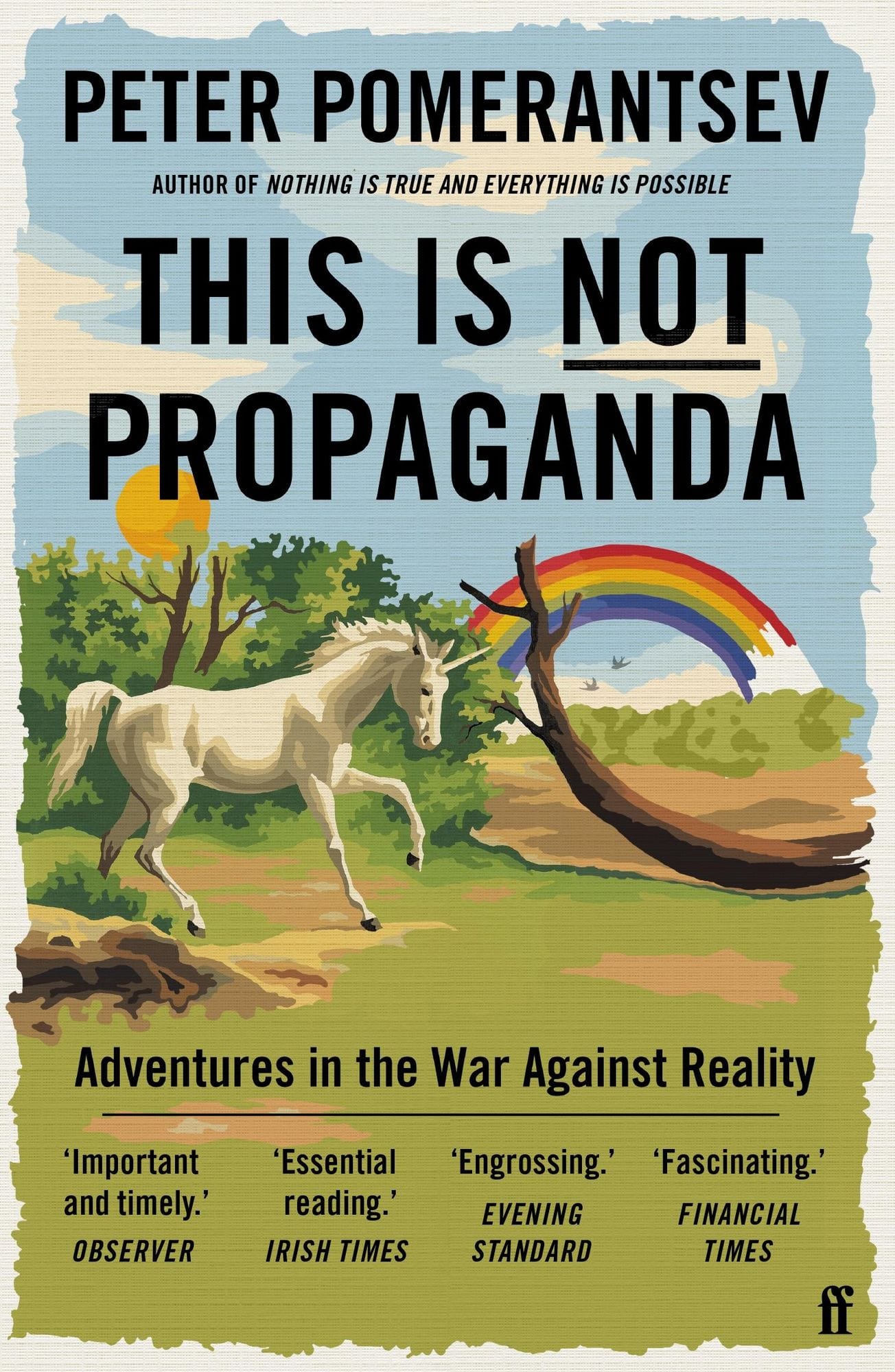
This Is Not Propaganda explores the global rise of disinformation, propaganda, and psychological warfare in the digital age. The author travels to different countries (including but not limited to Russia), documenting how governments, political movements, and online networks manipulate reality to control populations.
Peter Pomerantsev has worked in Russia for a long time during the formative years of Putin's rise to (somewhat) absolute power. Drawing from this background he provides somewhat of an insider’s perspective on how authoritarian regimes and populist movements use propaganda to shape perceptions and suppress dissent.
Intermediate
Media and Power in Post-Soviet Russia
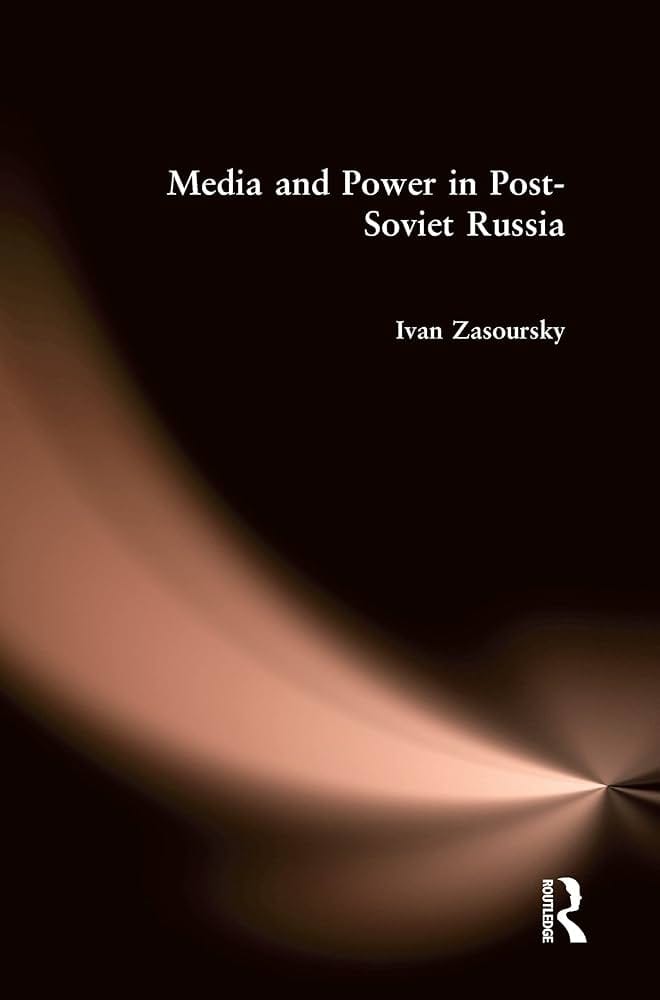
This book examines the transformation of Russian media following the collapse of the Soviet Union, focusing on how television, print, and digital media evolved in the 1990s and early 2000s, including the rise and fall of independent media.
The book combines political, economic, and journalistic perspectives, requiring some familiarity with Russian history and media theory to fully appreciate its insights.
Changing Channels: Television and the Struggle for Power in Russia *
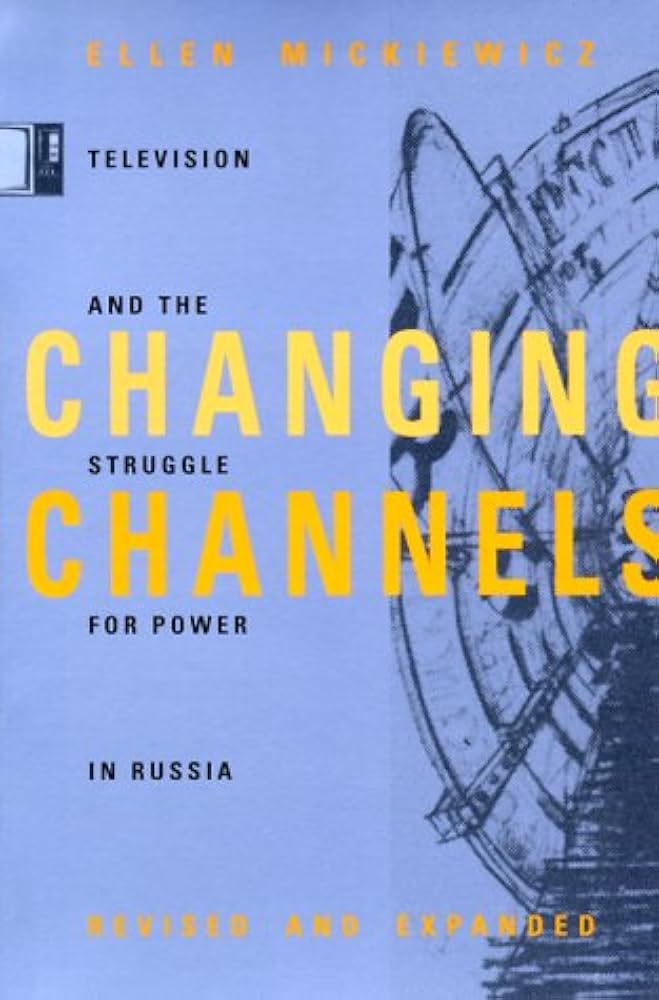
Changing Channels provides an in-depth analysis of Russian television and its role in shaping public opinion and political power.
Ellen Mickiewicz explores how television evolved from the Soviet era into a battleground for influence in the 1990s, covering issues such as media privatization, government control, and the role of journalists in post-Soviet Russia. The book discusses how television became a crucial instrument for political elites, both during the Yeltsin years and as Putin consolidated power.
Advanced
Television and Presidential Power in Putin’s Russia *
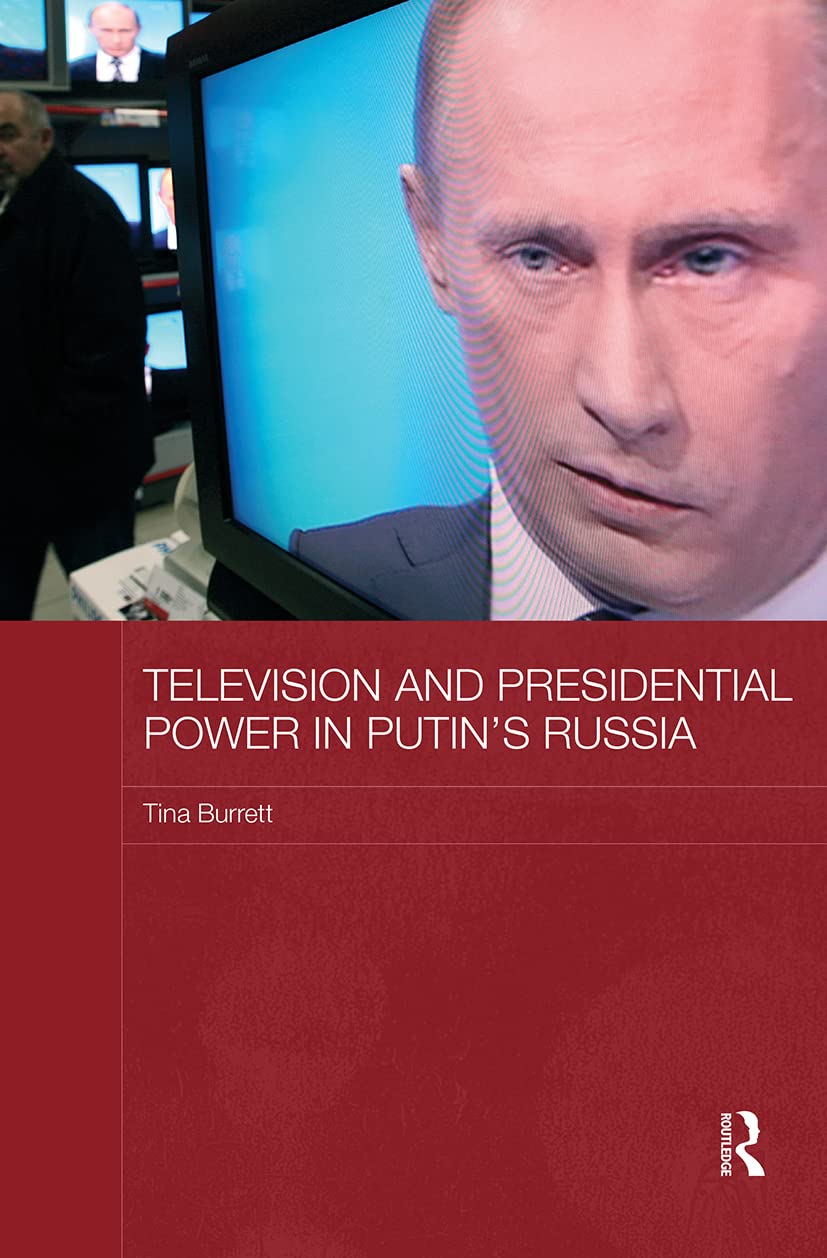
This book provides an in-depth analysis of how television has been instrumental in consolidating Vladimir Putin’s power in Russia.
Tina Burrett examines the relationship between the Kremlin and Russian television networks, showing how state-controlled media shape public opinion, reinforce political narratives, and suppress dissent.
She also compares Russian media strategies with those in other authoritarian and semi-authoritarian regimes, offering a broader understanding of media control in modern politics.
The person who recommended it to me said: "This book is academic to the core, rooted in political science and media studies. I found it very interesting, but don't recommend it for the faint-hearted reader." - ye be warned.
News Media and Power in Russia
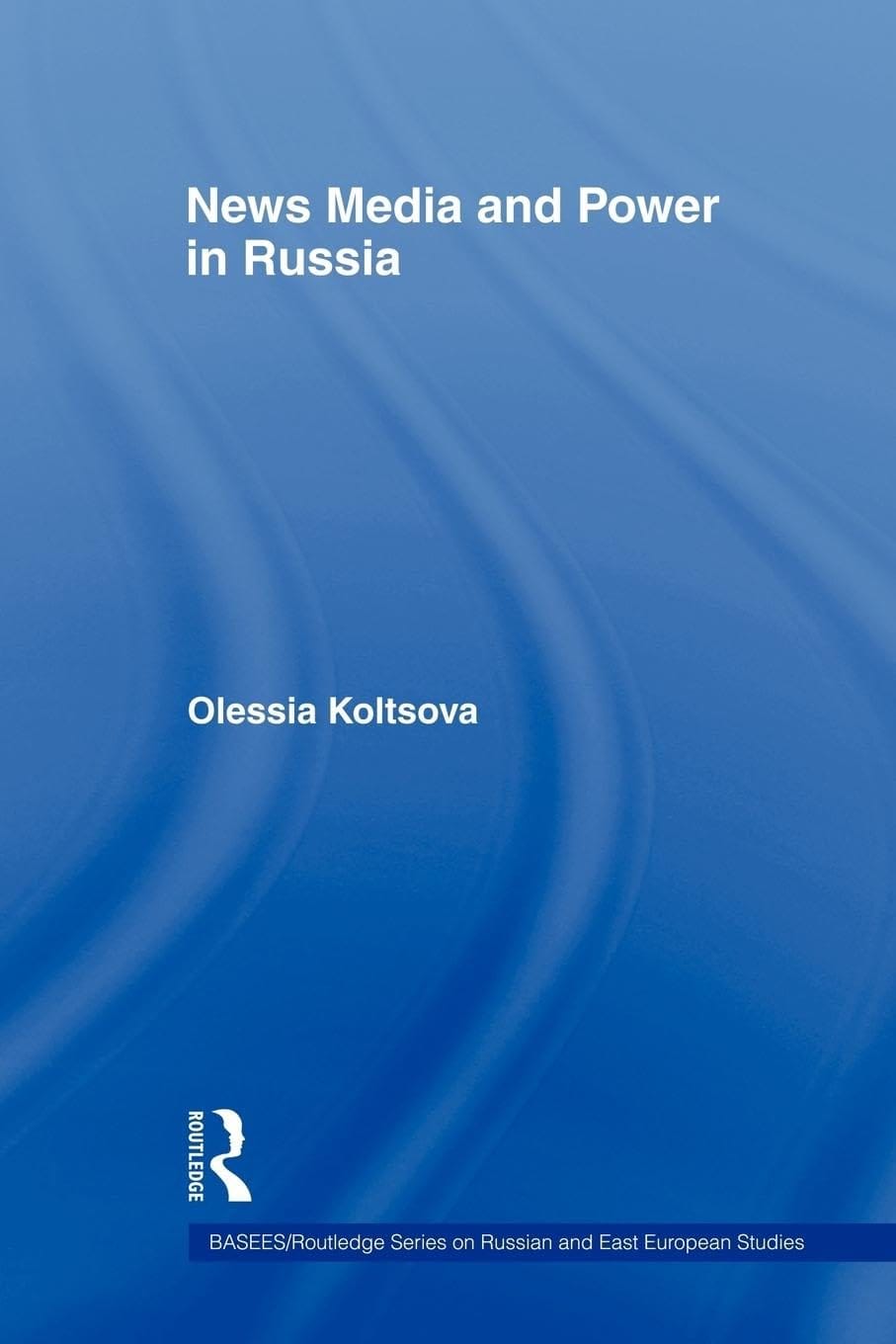
News Media and Power in Russia explores the complex interactions between media institutions, journalists, and political power in post-Soviet Russia. Olessia Koltsova analyzes the structure of the Russian media landscape, including state-owned and independent news organizations, and examines how political actors influence media content and public discourse.
The book includes detailed empirical research and theoretical discussions that require familiarity with academic discourse in media sociology and political economy. Otherwise you, like me, will do a lot of searching on the Internet while trying to read it.